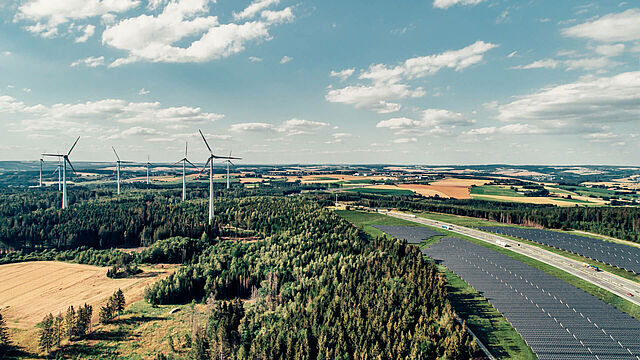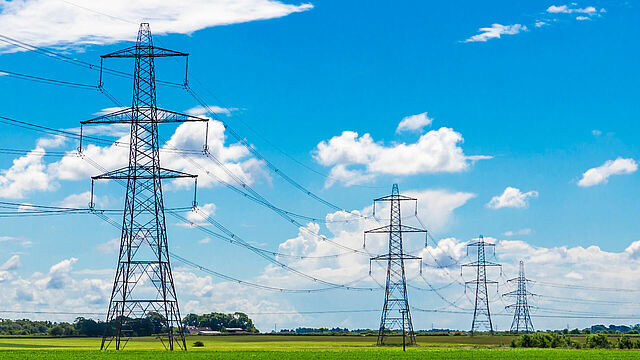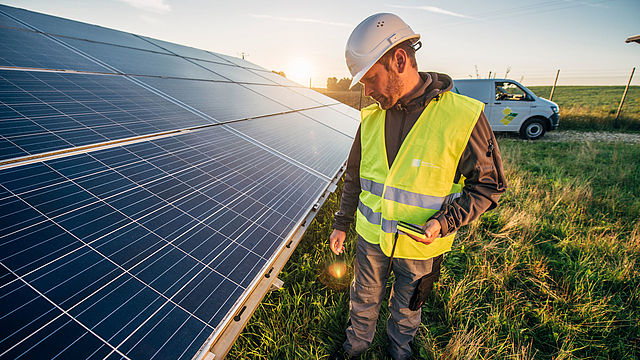Battery storage systems are true all-rounders when it comes to grid stability
Storage Solutions for Energy Transition
Renewable energy’s market share is growing fast worldwide, with the goal of outgrowing fossil fuels and embracing CO2-neutral energy supplies. In the EU alone, renewables are expected to generate 42.5% of all energy by 2030. Energy storage enables all this green electricity to be used efficiently, ensuring electricity grids remain stable.
Battery storage technology is versatile and powerful. Large-scale stationary storage systems ensure sufficient renewable energies are always available at the right time.
Placing BESS strategically across the power grid helps reduce the need for grid expansion by making better use of existing infrastructure.
Battery storage, coupled with or without renewables, creates flexibility and supply security both at affordable cost for society.
Our Mission
BayWa r.e. works to ensure no wind or solar facility has to be temporarily shut down. We develop stationary large-scale storage systems, either coupled with wind and PV or as standalone storage. This ensures all green electricity can find its way to the grid.
Alongside renewables, electricity from wind and solar parks is stored during phases of oversupply and made available when needed. Standalone storage is used to maintain grid stability, delivering power in peak times and for trading on wholesale markets.
We’re a proud a member of the European Association for Storage of Energy (EASE). That sees us actively involved in shaping European storage regulations and modifying energy markets.
The association plays a leading role in integrating energy storage systems into Europe’s energy supply.
BayWa r.e. storage technology in numbers
How does storage work?
Investing in wind and solar BESS technology
Battery storage systems help advance the energy transition while securing a stable cash flow for decades.
Years of experience in wind and solar let us operate renewable energy installations as profitably as possible. BayWa r.e. experts can handle everything from construction to contracts and permitting. Our expertise in energy trading ensures your investment pays off quickly. If you’ve already invested in renewables, BESS will further diversify your portfolio and generate additional revenue streams.
Contact us to learn more about the possibilities of large-scale battery storage.
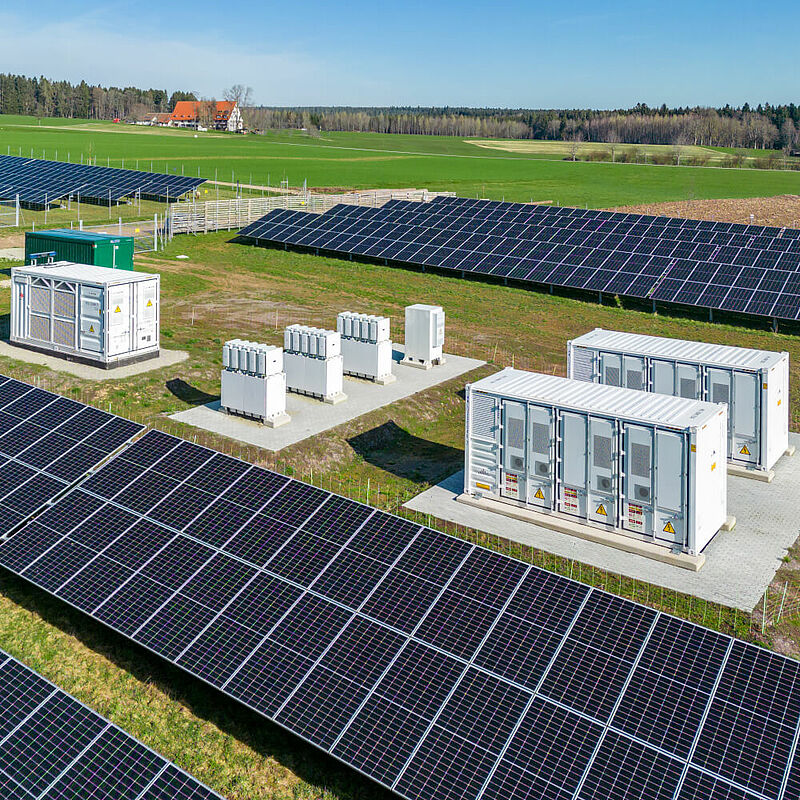
Partner with energy trading experts
As a major energy trader with experience in the flexibility markets, we can handle marketing and revenue optimisation for flexible assets like BESS. From the initial enquiry to successful completion, we use this expertise in the management of battery storage systems.
Take advantage of the flexibility of BESS and benefit from attractive revenues. Our 24/7 trading team manages your investment and ensures optimal outcomes in all relevant markets.
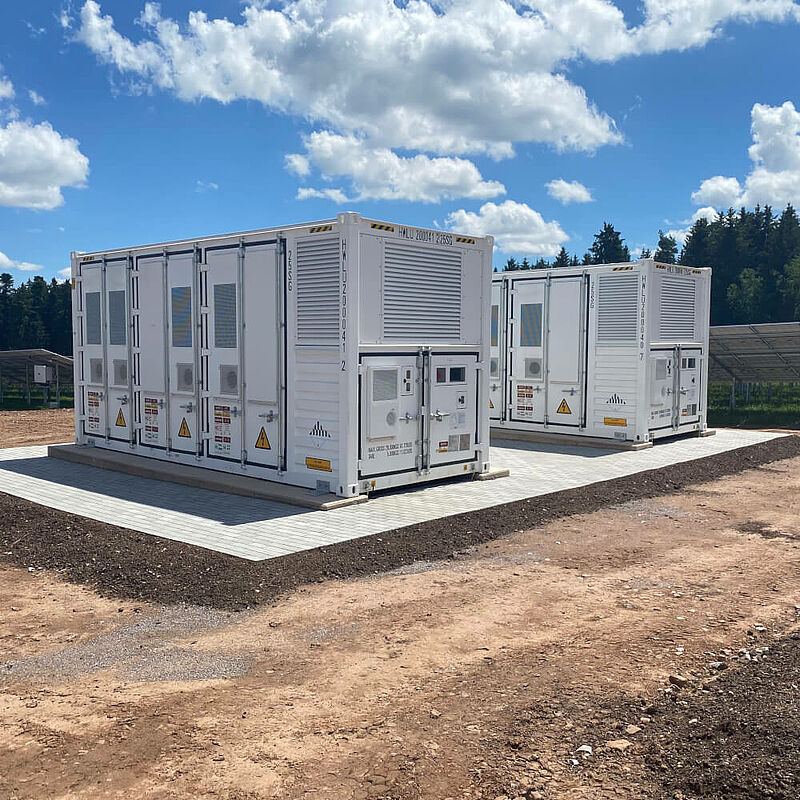
Develop your project with us
We support local companies in joint project developments. Our technical knowledge and global experience, alongside our financial and operational resources, can optimise your facility.
We acquire project rights at all phases, and take a partnership approach to our work.
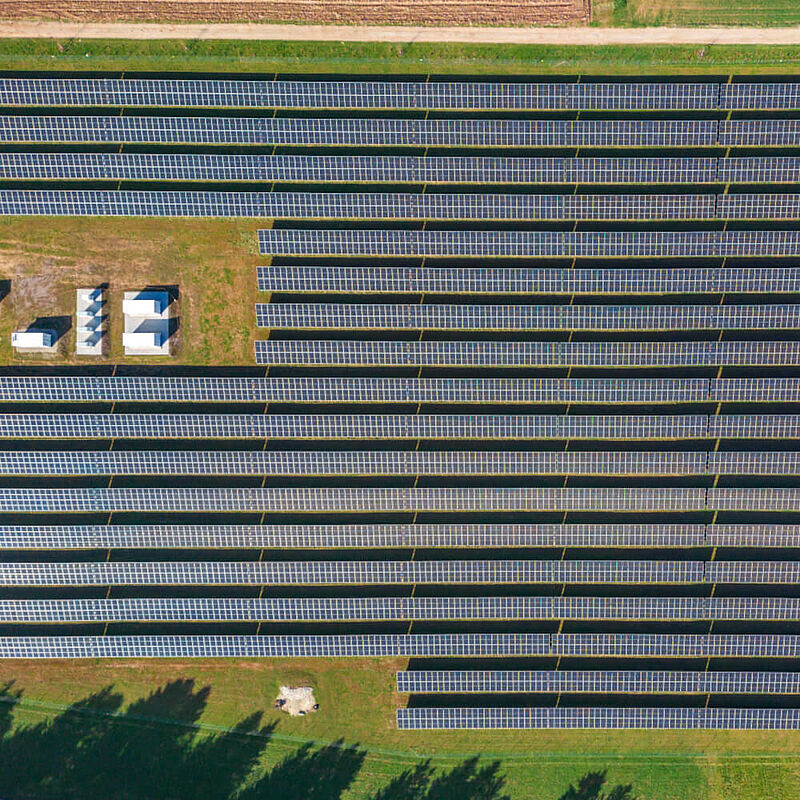
How We Can Help You
Project Development
Project Development
Project Structure
Project Structure
Revenue Forecast and Profitability
Revenue Forecast and Profitability
Planning, Procurement, and Construction
Planning, Procurement, and Construction
Operations Management and Maintenance
Operations Management and Maintenance
Flexibility Marketing
Flexibility Marketing

Energy Storage Systems are essential for the global energy transition. BayWa r.e. expertise covers the whole value chain; from planning and financing to implementation, safe operation, and marketing.
Julian Gerstner
Head of Storage
Frequently asked questions about battery energy storage solutions
- What are the benefits of partnering with BayWa r.e.?
Decades of experience in renewable energy gives us extensive know-how and a worldwide professional network. We’re a quality-oriented full-service provider with a solid financial background. Our expert teams around the world have extensive knowledge of regional and local conditions. From project design to completion, we remain your trusted partner throughout the entire lifespan of a large-scale storage system.
- How important are storage projects for the success of the energy transition?
Very! Large-scale BESS reduce need for expensive grid expansions. By combining high efficiency and fast reactivity, they balance short-term differences between supply and demand. They also enable renewables to be integrated into the electricity grids more reliably and widely. In future, we’ll see a diversified landscape of storage solutions used to enable the move to net zero.
- Why is the flexibility of storage solutions so important?
The production of solar and wind energy varies depending on the weather. As renewables’ share of overall energy mix increases, grids must compensate, ensuring stable supply even at peak times. Storage solutions offer crucial flexibility: they store power in times of low demand, releasing it again when demand is high.
- In which countries does BayWa r.e. implement large-scale storage facilities?
BayWa r.e. is active in more than 30 countries, and involved in energy storage projects all over the world. Project development and implementation are already well-established in Europe, Asia, and the USA. Since we work on specific projects at different stages of development, it’s important we understand each individual market. That lets us ensure the best possible returns for BESS projects.
- Which technologies does BayWa r.e. use for large-scale battery storage?
As storage devices, lithium-ion (li-ion) batteries have a high energy density and lose little capacity with frequent charging. About 90% of stored energy is recovered and used again. Li-ion batteries are scalable; systems can be of any size, thanks to a modular design. They’re also more widely available, therefore more cost-efficient.
Our development teams are always exploring new technologies. We’re in close contact with manufacturers to diversify our technology portfolio. Sodium-ion batteries, for example, have potential to compete with li-ion. Realising this potential represents a big step forward, making batteries less resource-intensive and with more localised value chains.

